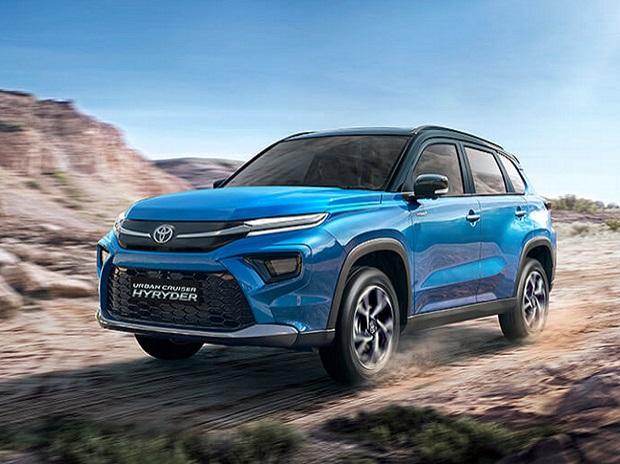Gill Pratt: Top Toyota scientist warns against ditching gasoline too soon ahead of G7
Written by Nicholas Takahashi and Craig Trudell
The chief scientist at Toyota Motor Corp. warned. Concerned that moving to electric vehicles too quickly could lead drivers to stick with the old, fuel-guzzling, hybrids, he called for giving hybrids a longer handlebar ahead of the G7 summit in Japan.
Subsidies and restrictions targeting some engines can make electric vehicles attractive to customers who can afford them, but for others they may have the opposite effect, Gil Pratt, Toyota chief scientist and CEO of the Toyota Research Institute, told reporters in Hiroshima Thursday.
It’s a recurring argument by the world’s No. 1 automaker: The transition to fully electric vehicles will take longer than people expect, and that a multi-pronged approach that embraces hybrid vehicles and alternative fuels will be better for the environment and the auto industry. This has fueled concerns that Toyota is giving Elon Musk’s Tesla Inc. And China’s BYD and other battery EV competitors are making unbeatable progress.
“Eventually, resource constraints will pass, but for many years we will not have enough battery materials and renewable recharging resources for a BEV-only solution,” Pratt said.
“The battery materials and renewable charging infrastructure will eventually be plentiful,” he said. “But it will take decades to expand mines for battery materials, renewable energy generation facilities, transmission lines and seasonal energy storage facilities.”
While Toyota and other Japanese automakers have pioneered hybrid technology, they have been slow to ramp up production of electric vehicles. Many have promised to rapidly expand production of electric vehicles in the next few years, but have done so without explaining how and when they intend to phase out hybrid or gasoline-powered cars.
Battery electric vehicles are “a very important option,” Akio Toyoda, president of both Toyota and the Japan Automobile Manufacturers Association, said during a news conference Thursday.
Throughout his 14-year tenure as Toyota CEO, which ended in April, the grandson of the company’s founder has been praised and criticized for his belief in an approach that includes selling BEVs alongside cars powered by hybrid or conventional internal combustion engines.
Critics say Toyoda’s strategy does not align with the automaker’s goal of halving emissions by 2035 and becoming carbon neutral by mid-century, an assertion it has denied.
“The goal is to do something about global warming,” Toyoda said. The common enemy is carbon dioxide.
Koji Sato, Toyota’s new CEO who took over in April, said that by 2026 Toyota will sell 1.5 million BEVs annually and introduce 10 new all-electric models. The world’s largest automaker sold 38,000 BEVs in the fiscal year that ended in March.
Toyota Chief Financial Officer Yuichi Miyazaki said in May that this figure will reach 200,000 in the current fiscal year, and Toyota will build an electric vehicle factory and invest 3.1 trillion yen ($22.5 billion) to achieve this.
In April, G7 environment and energy ministers pledged to cut vehicle emissions by 2035 but stopped short of announcing any deadlines or interim targets after a meeting in Hokkaido, Japan.
